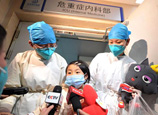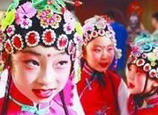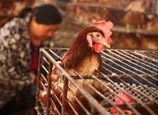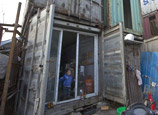
An online post claiming that a milk tea shop used industrial materials and expired ingredients to make beverages has aroused food safety concerns.
"I knew the milk powder and the swill-cooked dirty oil were undrinkable. It's beyond belief that now the milk tea around campus is undrinkable as well," a female junior student of Chongqing University wrote on the Internet on April 13 after working part-time in a milk tea shop for more than a month.
Her post included pictures she took at the job that showed chemicals and outdated ingredients being used to make milk tea.
The micro-blog post got widespread attention. The original post was reposted nearly 700 times. Many official media micro blogs across China reposted an article from Chongqing Economic Times, which interviewed the student.
News about shady milk tea shops are no stranger to the country.
As early as 2009, the Shanghai Evening Post wrote that many of the "pearls" in milk tea are likely not made of milk at all, but of plastic and chemical materials that taste like milk.
At the end of last month, a reporter of the Beijing-based newspaper The Mirror wrote a report after working undercover for 90 days. The article said that many workers in milk tea shops lack health certificates, and some facilities have never been disinfected.
The coming summer will see drinking milk tea become more popular, especially among youth. But Kan Jianquan, vice-president of the College of Food Science at Southwest University, told Chongqing Economic Times that people should be cautious if they drink milk tea regularly.
Trans fatty acids may be generated in the process of producing nondairy powder used in milk tea, and the acids can increase the possibility of heart and cerebrovascular disease, Kan said.

















 Photo: Bird flu fears hits poultry industry
Photo: Bird flu fears hits poultry industry


![]()
